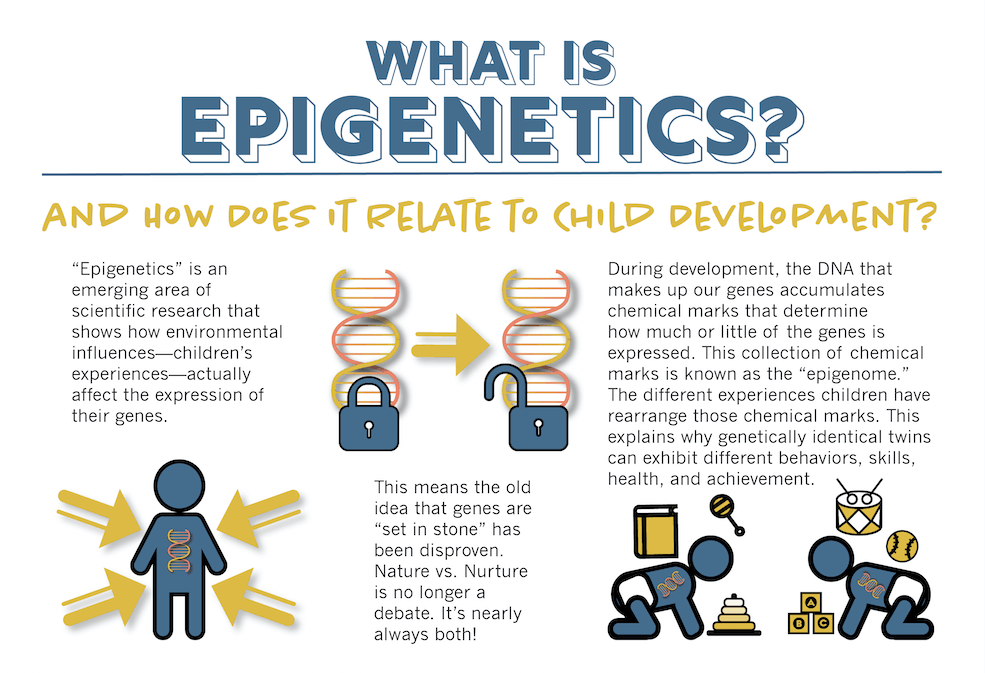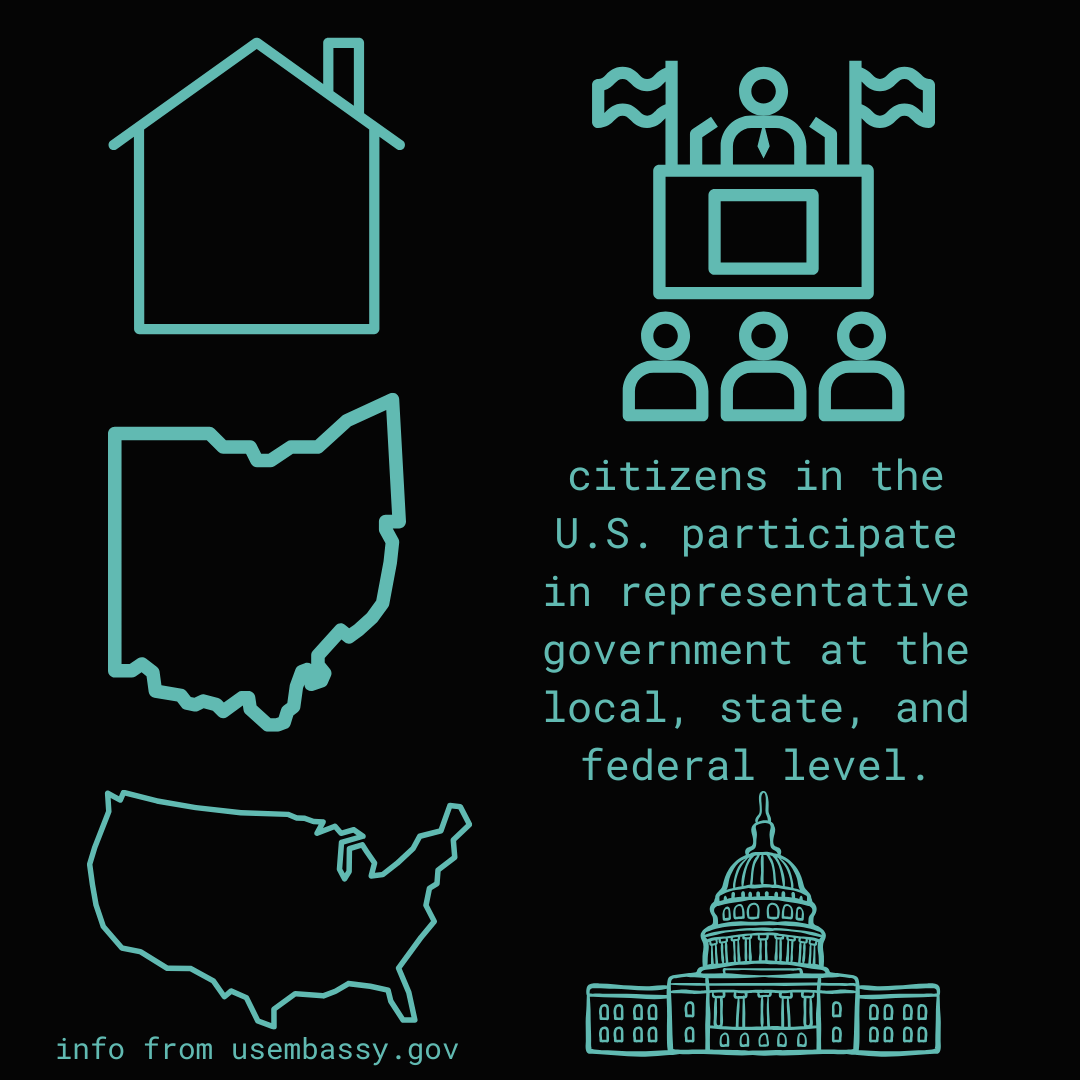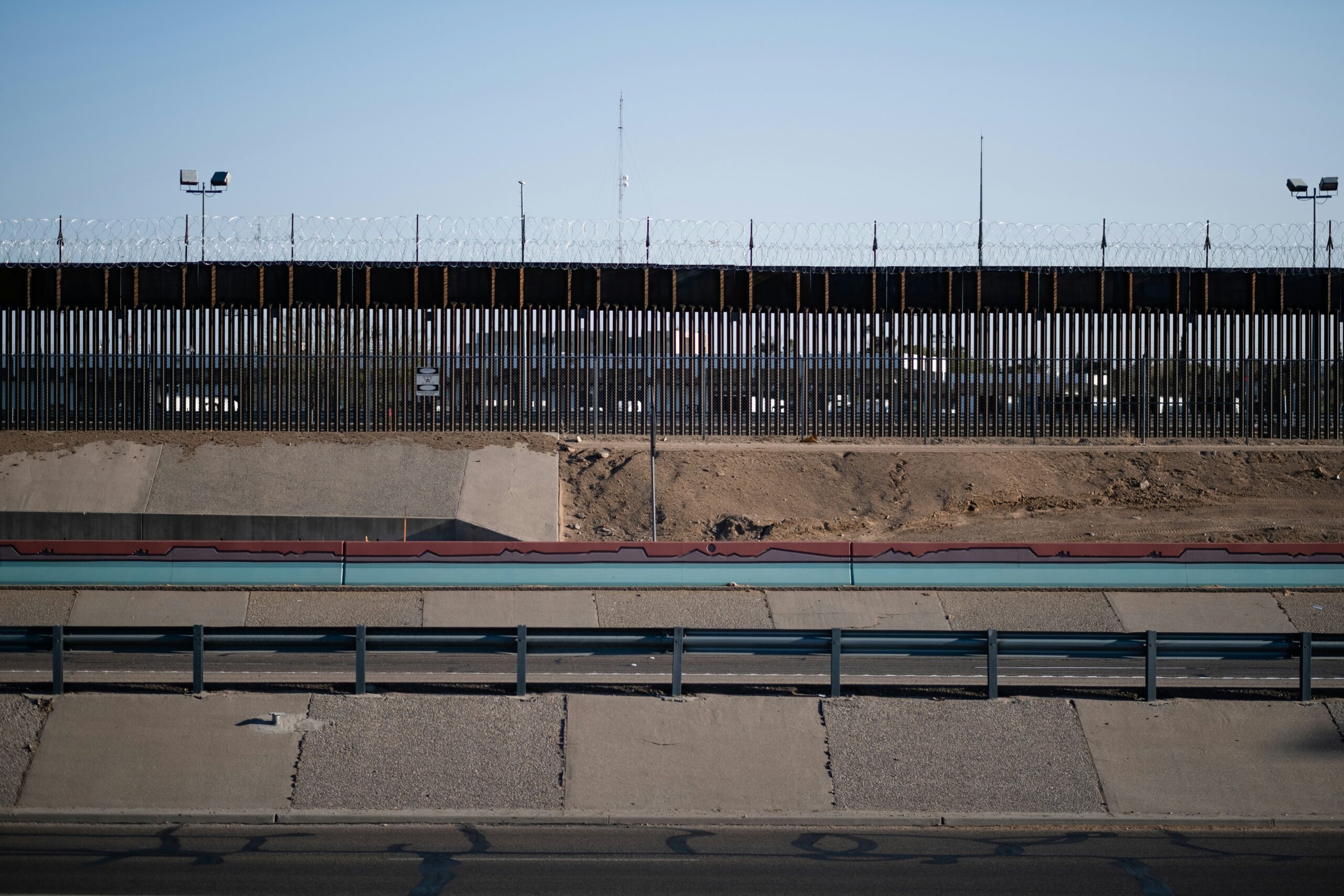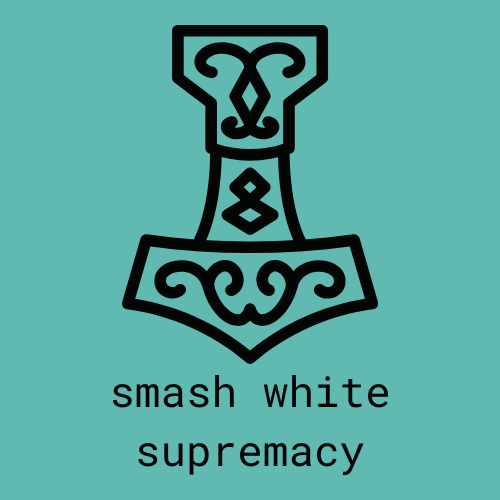My therapist introduced me to the concept of legacy burdens. I pieced together that racism is a legacy burden on my own.
Legacy burdens is language used in Internal Family Systems therapy. It acknowledges that some trauma and discomfort impacting an individual in the present, could be coming from shared, past, events.
The idea of legacy burdens isn’t a new one. Since long before the written word, Indigenous cultures worldwide have had intentional practices to heal the wounds of those suffering in the present: by acknowledging the pain from the past ancestors of an individual.
Epigenetics = Environment + Genes
Epigenetics is the multi-disciplinary study of how genes can change based on “nurturing” and environment both.
The idea of cellular memory and it’s impact on human development (never mind trauma symptoms) is very new. Yet Cultural Trauma and Epigenetic Inheritance are very real and cause psychiatric symptoms and/or disorders.
Anxiety, panic, and depression, and PTSD are “likely to run in families” for more than one reason. When we, as individuals, have ancestors who have experienced various traumas, how those are presented to us from early memory also can create symptoms. What’s more, the very social norms we live and grow in, if they’re similar to those of ancestors, can create their own symptoms, it seems, in individuals with no lived experience of a specific trauma.
Example of A Legacy Burden
I have ancestors who burned people as witches. I also have ancestors that were accused of witchcraft and sentenced to public execution. This was news to me until I started diving into my own family lineage. (More on that, later).
In the Netflix series “Wednesday,” the teen protagonist mysteriously connects to her doppelganger and ancestor, Goody. In the episode, Wednesday learns the bloody past of where she’s staying at school, caused by Puritanical violence.
I went from lying on the couch watching a show with my family to full-blown panic. I had to leave the room, because the imagery of the town and the content was doing something to my body that didn’t make sense: I felt sure something bad was about to happen to me. My body responded accordingly.

A few months after this episode aired, I learned some of the first colonizers in my family settled Salem, in addition to the Virginia Colony, Jamestown, New Amsterdam, Georgia, and Alabama. The fact that this was something I didn’t know is itself a potential “legacy burden” by definition.
Whether or not information is known, ignored, and translated from one generation to the next, impacts us in the present.
Remember: when information is presented to us, how it’s presented can also cause symptoms like those I experienced watching “Wednesday.”
Research shows, that how past traumas are relayed to people in the present, especially children, impacts or causes, symptoms directly related to that trauma. Whether it’s omission, downplaying, ignoring, or brutal, no-holds-barred-toughening-up detail, these details or omissions matter.
Racism Is a Collective Legacy Burden
Refusing to acknowledge past events in detail is harmful. Individually speaking, omitting and re-writing facts, or worse, championing that enslavement was good, actually, is perpetuating, and not repairing, the racist traumatic past of the United States. This harms every single person inside the U.S., myself and my kids, included. It creates trauma in real time while simultaneously leaving it for the generations after we’re gone.
I don’t know how epigenetics works, yet I accept that it’s impacting me in real time. The language used by current Ohio Republicans and those across the nation are so triggering to me, I do my best to avoid it. Like how I once avoided all information about pilgrims and Salem, this doesn’t actually do me any favors. Neither do panic attacks, frankly. It doesn’t keep my kids safe, or help me sleep at night. Ignoring facts, actually, also has unfortunate consequences.
Unburdening
Self is a huge concept in Internal Family Systems Therapy. The concept is one where clients (like myself) learn to curiously and slowly feel a sense of calm about different aspects or parts, of ourselves. Once there is an established sense of Self, then, it’s possible to unburden legacy traumas in a way that is individualized.
Unburdening is a process where acknowledgment happens. Without knowing that there is something there, how will you let it go?
One way to develop this is to create a family tree, a genogram, or journal out traits and things you enjoy or don’t, within your own family line. This creates a sense of Self inherently; because you’re able to connect with different aspects if you accept them.
Intentionally shifting into a curious, rather than defensive, frame-of-mind can be done. When difficult emotions, truths, or surprises come up if one chooses this practice, having curiosity is essential. It gives you permission to examine what comes up, or ride it out, curiously noticing what that’s like: rather than turning away from it.
This Doesn’t Stop Racism
Ignoring the past and refusing to see it as a resource is likely what’s leading us to climate change, current political unrest that is, actually, very Puritanical, and racist state violence. What unburdening legacy traumas can do for white people is, give you permission to form your own reactions.
Once I learned what the past was like for my ancestors, I felt and still feel, compassion, sadness, and grief. Even in those specific times, it saddens me that there were options that were never even tried. At least, none that made it to the written record, or which did stop racism and brutal religious violence.
I wish that someone would have told my ancestors that they have options–even if it all feels hopeless: just look for the options, and stay curious. Believe that there are options in the present, and you will find at least one good one.
The process of unburdening a legacy of racism won’t stop racism; but it also isn’t ignoring it or allowing facts to be provided for me, either. And it gives me a replacement to spend my energy on, since I’m not exhausted from trying to justify the behaviors of racist and prejudiced people and practices around me. It frees me in many ways.
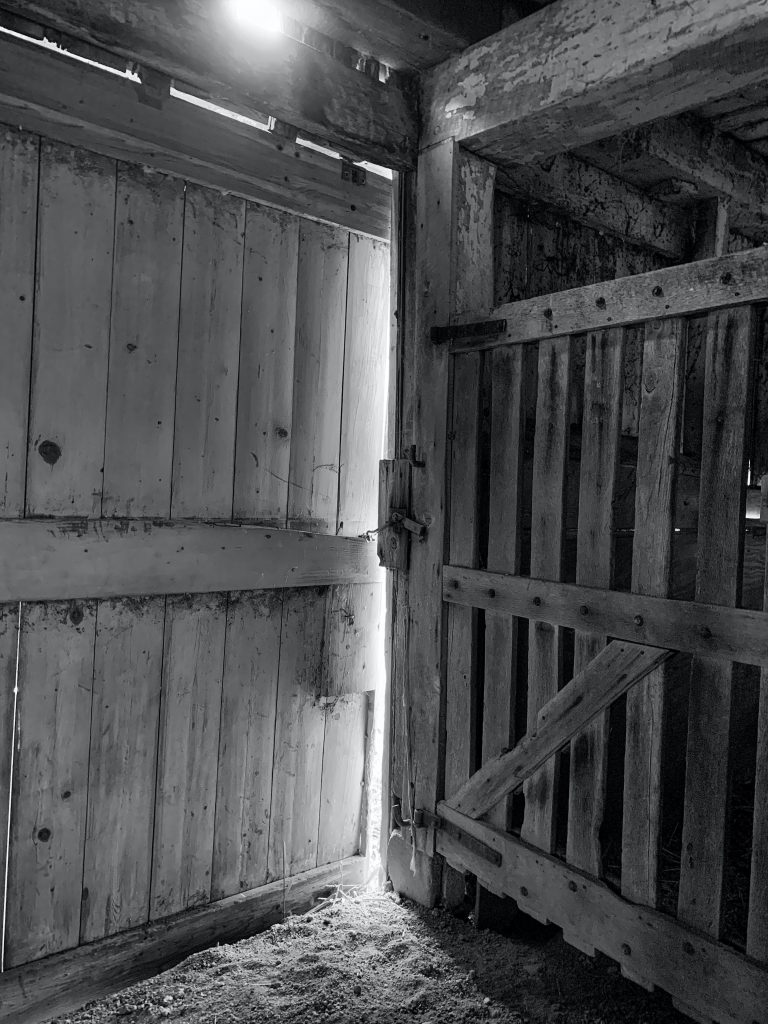
Intergenerational Trauma and Intergenerational Racism
What we don’t talk about enough is, how even white people are traumatized by racism. Overseers and enslavers aren’t renown for their parenting skills, despite their Biblical knowledge and wealth in the Americas. Trauma is one of the few things in life that’s tangibly equal. A human brain, in any developmental stage, can experience trauma, and racism is a violent way of life.
Whiteness and coercive whiteness to standardize norms against is actively harming us all in real time. The fact that this is a good time in 2023 to bring up Puritans and colonial America is just one example of how deep the shit is we’re in, politically speaking, as a collective, right now.
What if it were the norm to acknowledge that racism traumatized you, and it’s traumatizing you right now? Or is it more comfortable to assume that racism can’t or doesn’t traumatize you because that sounds weak, and you’re not weak? (If this resonates for you, this is an ableist checkpoint. FYI).
What is it that makes it so taboo to keep a career and say these things out loud, while everyone just accepts that as normal?
What My Ancestors Taught Me
I have the same issues a lot of my ancestors did. I, like my ancestors before me, aren’t afraid of breaking social norms to speak against tyranny. Many of my ancestors are people who I’m humbled to be connected to. Others, I’m shocked that I can relate to in any way–even as I accept that these are my own people. The process of finding my ancestors, and accepting them, like being anti-racist, is an ongoing adventure.
My ancestors also taught me a lot of U.S. history. How I got to Ohio, and where and when, were never taught to me, so as I learn it on my own, I’m grateful for Google.
What I Teach My Children
My children know about their ancestors and they know about our intergenerational racism just as much as they know how to duck and cover, or fight back, in the event of an active shooter.
The ancestors who we talk about the most have the last name “Butt.” Maybe that will change when they get older. There are a couple of folks that they were excited to find out we are allegedly connected to.
My children know how to find the places our ancestors came from on maps, and are learning facts in history and geography. They learn about the fashion, enslavement, religious norms that are age appropriate, and how this impacts us right now, today.
Part of unburdening, the important part, is seeing what is, and then, like Elsa said; letting it go.
Burdens don’t get destroyed; they become integrated into the fabric of now and ourselves. Burdens, like racism, become accepted parts of ourselves. Once accepted, this can be transformed; whereas ignoring (empowering) racism and racists, is destructive.
I choose each and every day to accept myself as a racist person. I was created and raised by, racist white people in a world created for people that look like me only. Each day, I still accept I’m worthy of love and a better life, and I show my kids a different way than I was shown.

